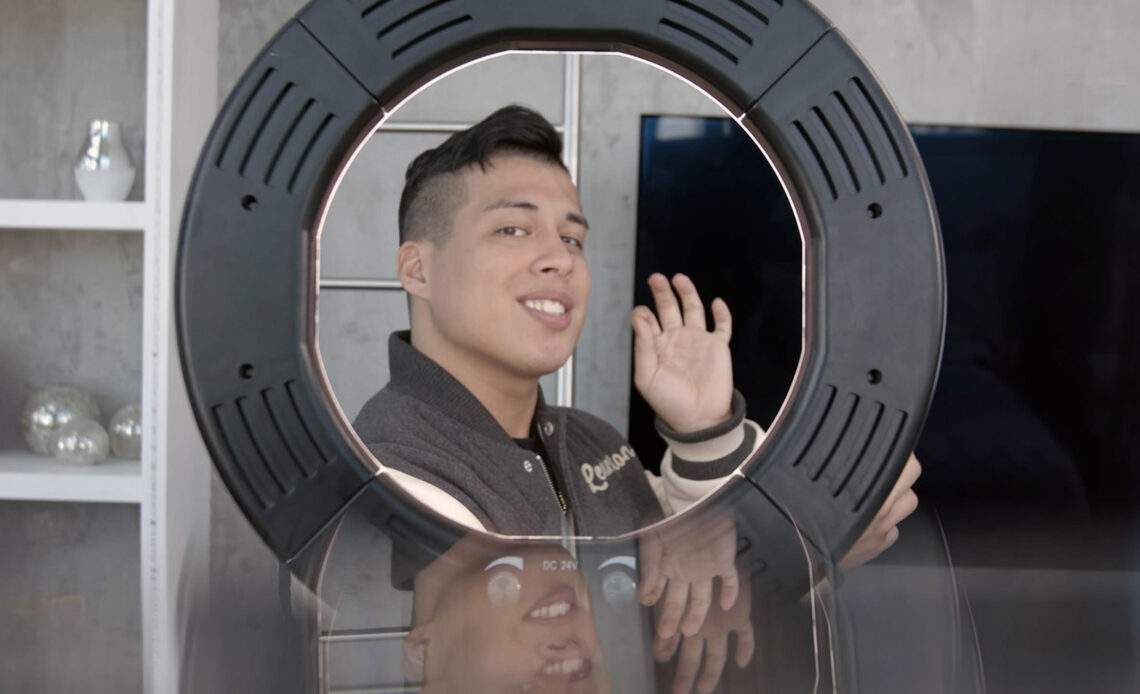
Near the tip of Tiktok, Boom, Content Maker and Beatboxer Spencer X choked. “Tiktok really changed my whole life,” he said with tears. He is one of some profiled influencers in a 90-minute documentary, which is prime at Sundance 2022 this weekend. It is also equipped with Activists Feroza Aziz, the most famous for the virus that slipped criticism of Chinese treatment against Uighur Muslims into what initially looked a makeup tutorial. Other subjects include the reproductive activist of Deja Foxx’s reproduction and Deuyin Creator Jason Zhang content, whose experience with the application is all stunning and moving.
Directed by Shalini Kantayya, Tiktok, Boom was intended to “[dissect] one of the most influential platforms of the contemporary social media landscape.” Film Description About the Sundance Festival Portal said it “examined the influence of algorithmic, sociopoli, economy and culture. And the impact of the historical making application.” Unfortunately, if you hope to learn something new about why your algorithm is very intuitive, why the parent bypance collects so much Data or what exactly application bond with the Chinese government, you will be disappointed.
In general, documentaries tried to cover too much. It jumped from Aziz to find the American-American-Afghan community on the application, to X oppose the expectations of his parents to make a career from beatboxing, to sexism, racism, child predators, body image problems, all creation and bypance, all in the first 40 minutes. There is a discussion of the impact on the mental health of the creator, Facebook’s interest in buying Tiktok, strengthening social gaps, control and sensors of China, Trump demonstrations in Tulsa, the next and more application prohibitions. In the second half, there was even a random dramatic reinakmentation of the “statement made by used defecation employees” during the Covid-19 outbreak.
If Tiktok, boom try catalog every time Tiktok makes the news, it does an amazing job. But in his efforts to recose history, the film failed to provide any insight. I can easily googled “Tiktok Timeline” and get all the same information without having to sit in front of my TV for 90 minutes. If the documentary narrowed his focus, I was suspicious I would learn more I also have small complaints, but it’s important. This film requires a more careful editor. It features a B-ROLL and interview expert correctly say and spell the Douyin application that overtakes Tiktok. Only a few seconds later, the narrator and graph on the screen both misinterpret themselves and MissPell Douylin as “Duoyin.” Other spelling errors: a list of what is called “sensor words” in a chart that is contrary to “censored.”
Maybe I have nit-picking, but something like this affects any documentary credibility, which must be a video journalism that is well examined It led me to my biggest problem with Tiktok, boom: it made some dangerous assumptions. At one point in the film, the rendering of animated insinuits that Tiktok scans the user’s face as they watch videos and determine whether they smile or not. This film believes that this information is then put into an algorithm that allows Bypance recommends more content on your page for you There is no evidence that Tiktok does this. In fact, except Apple and Google’s privacy indicators (which show when your cellphone’s camera is used) does not work, people will know if an application watches it. More likely that Tiktok, the boom team misinterprets requirements in the application privacy policy that states collecting “faceprints and voiceprints.”
Influencer and Acticist Feroza Aziz in a scene from Tiktok, Boom., A film directed by Shalini Kantayya. This film is the official choice of US documentary competition at the 2022 Sundance Film Festival. Owned by the Sundance Institute Belongs to the Sundance Institute It’s not said that Bypance is really clear here; Never explicitly explain why it collected the data. Other parts of the privacy policy are even more worrying, such as the fact that Bypance collects information about the pattern or rhythm of the user keystroke. “By 2020, the company must openly acknowledge the error and agree to stop accessing the user clipboard data every few key emphasis. At that time, it is claimed this is part of the anti-spam feature. Now, the latest version of iOS and Android will tell you if a The application has access or attached content from your clipboard, so you can find out unnecessary data collection.
Look, I understand. Algorithms for you can be extraordinary so people scramble to find evil reasons for their effectiveness. It’s like when we all wonder whether Instagram and Facebook listen to our conversation to serve us on time on time. But it’s one thing for individuals to wonder if your cellphone spies with you and another problem if a documentary recklessly claims it happens. The filmmakers do not seem to be aware of the responsibilities that must be possessed by viewers In fact, having a tiktok, the boom is only focused on breaking your algorithm or learn exactly what the application is collected by the application (and in the context of the bond with China), this film might have dug something on. Instead, it finally became a recap that was largely excessive with an interesting title.
